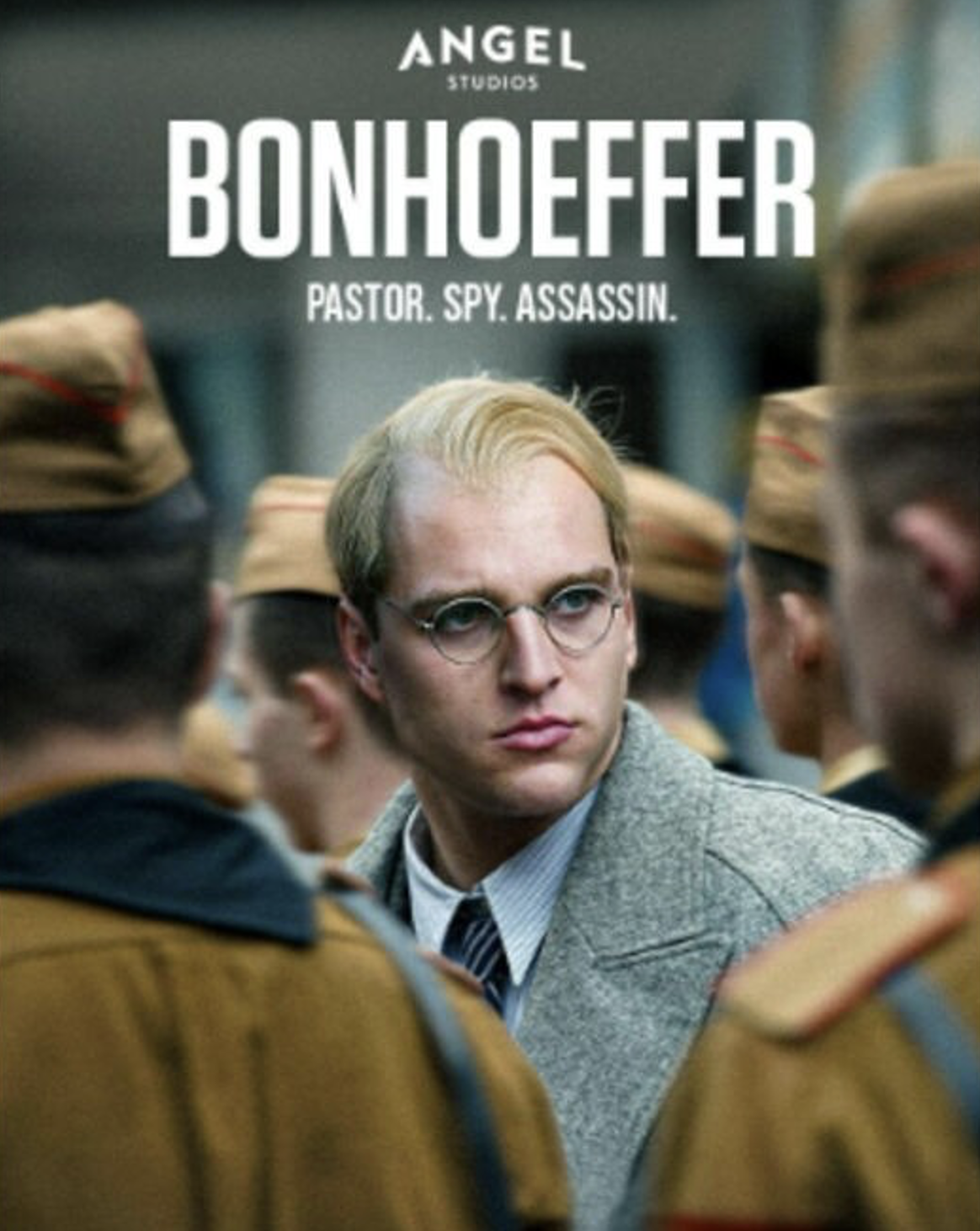Bonhoeffer the Movie
Last week I saw the movie “Bonhoeffer: Pastor, Spy, Assassin.” The title summarises the offence of the movie to historians and theologians alike.

Last week I saw the movie “Bonhoeffer: Pastor, Spy, Assassin.” The title summarises the offence of the movie to historians and theologians alike. ‘Spy’? Kind of. ‘Assassin’? Really??
The movie portrays much uncontroversial history. Like Dietrich Bonhoeffer’s education, including in America, his deep concern about the political direction of his country, his lecturing at Finkenwalde, the influence of Nazism on the German Lutheran church, his involvement in the Abwehr (military intelligence), his arrest and execution.
What is controversial is that at the heart of the movie is firstly the confident assertion that Bonhoeffer was a would-be assassin, and secondly that his moral convictions were not determined by his theology but by historical necessity.
Bonhoeffer was initially arrested not for an assassination plot (as the film depicts) but for his involvement in Operation 7, a scheme to smuggle Jews into neighbouring Switzerland. His primary intrigue through the Abwehr was passing information about the Nazis to his ecumenical church contacts in England and elsewhere - not, as the film depicts, trying to convince the English to supply a bomb to kill a dictator.
And,while Bonhoeffer undoubtedly knew of plans (which included family members) to assassinate Hitler, evidence surrounding his direct involvement remains murky and contested. Among historians, the theologian’s relationship to an assassination attempt is a hotly debated question - less a matter of Bonhoeffer’s own words than informed conjecture about what he knew of his brother-in-law’s activities. Yet for the Bonhoeffer movie, there’s no debate: Bonhoeffer not only knew of a plot to kill Hitler but also was intimately involved.
As for his abandoning of his theological convictions for political activism, the truth is rather that he lived out his theological convictions in the extreme circumstances of the Third Reich. Bonhoeffer was not a person who left behind prayer for conspiracy, Bible teaching for political espionage, or theology for activism. Serving his neighbour (those despised and decimated by the Nazis) was deeply theological.
It is only at the end of movie, before the credits start to roll, that one learns that by age 39 (when he died) he’d authored 34 books. He was an intellectual giant. Which makes him hard to interpret and categorise, a complex and at times elusive figure. So later authors, like the movie’s creators, choose the bits that appeal to them.
And I am similar. The Bonhoeffer of “religionless Christianity,” of seeing the whole world as the sphere of God’s activity, is more attractive to me than those theological similarities he held with his contemporary Karl Barth.
As an aside, one of the most cringeworthy scenes in the movie is when the Barmen Declaration (the founding of the Confessing Church) is signed, not in Berlin by German Lutherans (including Barth), but in London by British Anglicans!
Yet,despite all the above, I still like what the movie stands for. It is a salute to courage in the face of extreme adversity. Courage from the pulpit. Courage to stand up and speak up for what one believes. To speak against the policies of a government and its discriminatory practices. Courage too to suffer for what you say and do.
The movie is also a critique of those Christians and churches who are beguiled by what authoritarian political leaders can offer – namely stability, strength, national pride, and security. In time those Christians and churches are faced with one compromise after another, ignoring one violation of their moral compass after another, until they either begin to resist more and more or completely capitulate.
Jim Wallis of Sojourners fame has written recently in this vein, reading correctly I think that this is movie made primarily for AmericanChristians.
https://jimwallis.substack.com/p/pastor-spy-assassin
Glynn





